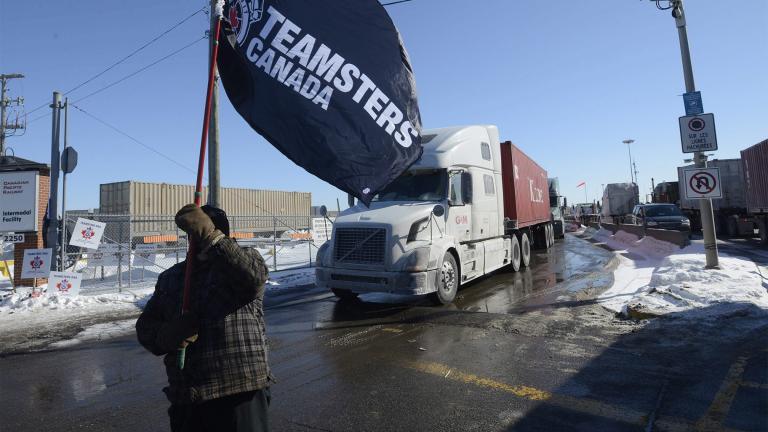Global markets slowed Monday, including the main U.S. indexes, as a trade war between the United States and China intensifies.
The tariffs President Donald Trump previously slapped on China deliberately sought to avoid impacting consumers, but now he’s preparing to levy more. And China’s ready to retaliate, with tariffs on American goods.
“One of the reasons you’re getting such a strong reaction now is there was a fairly obvious conclusion that everybody thought they saw coming last week, which is: You do a deal – it’s not a terribly deep deal, it doesn’t hit all of the concerns that the U.S. has about the Chinese economy – but you work it out and everybody declares victory,” said Phil Levy, a senior fellow on trade with the Chicago Council on Global Affairs and a trade economist with Northwestern University’s Kellogg School of Management. “We seem to have veered away from that pretty sharply. And now that tariffs have been applied on each side it’s a lot harder to see what they’re going to do to get out of this trade war, and when.”
Levy said there aren’t many appealing options for the Trump administration going forward.
Neither he nor personal finance expert Terry Savage say they believe China will give up and give in, despite a series of tweets from Trump trying to give assurance, including one early Monday saying that “there is no reason for the U.S. consumer to pay the tariffs” and defending his moves because China has taken advantage of the U.S. “for so many years.”
“The savage truth is no one wins a trade war,” said Savage, author of “The Savage Truth.”
While it’s enough to make investors nervous, she said that most people should take a deep breath given the stock market’s high returns this year. Despite Monday’s slips, markets aren’t far from an all-time high in January that likely reaped solid profits in 401(k)s and IRAs.
“But if you’re approaching retirement or required minimum withdrawals, this might be the time to set some money aside in safer alternatives like treasury bills and bank CDs so you won’t be forced to sell if this global trade slowdown spirals out of control," she said.
Levy, who was senior economist for trade for President George W. Bush’s Council of Economic Advisors, said both China and the U.S. are likely to feel the impact down the road.
“It could hurt China and it could hurt the United States. And I think that’s what’s going to happen,” Levy said. “And you could see production moving out of China, you could also see production moving out of the United States. If an American multinational has a competitor who is not based in the United States, that competitor right now is not paying a 25% tariff on say, imports, that come in from China to Canada or to Germany. The U.S. firm is paying that 25%.
“As a general rule, if you have higher costs, you’re at a serious disadvantage.”
Follow Amanda Vinicky on Twitter: @AmandaVinicky
Related stories:
Chinese Trade Negotiators Head to Washington After Trump’s Tariff Threats
US Chamber: $3.8 Billion Worth of Illinois Goods Threatened by Trade War
Why Illinois Soybean Farmers Fear a Potential Trade War With China








